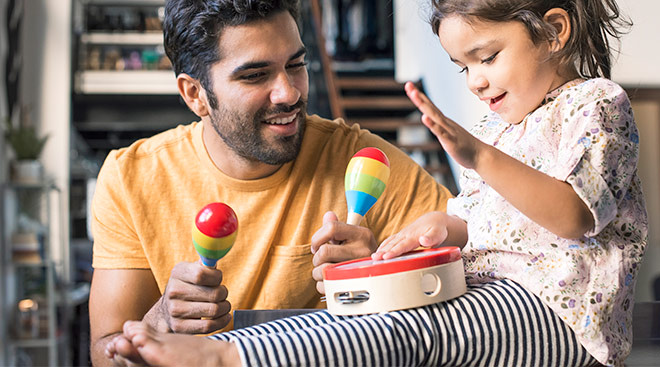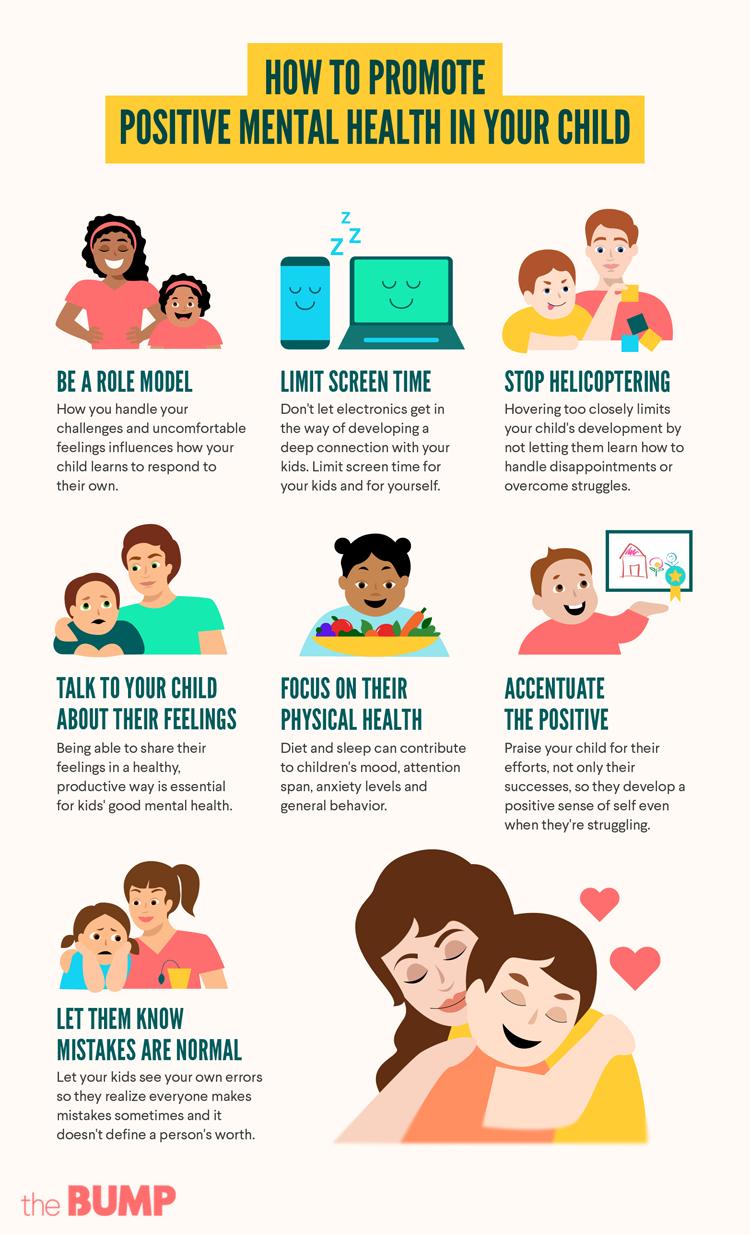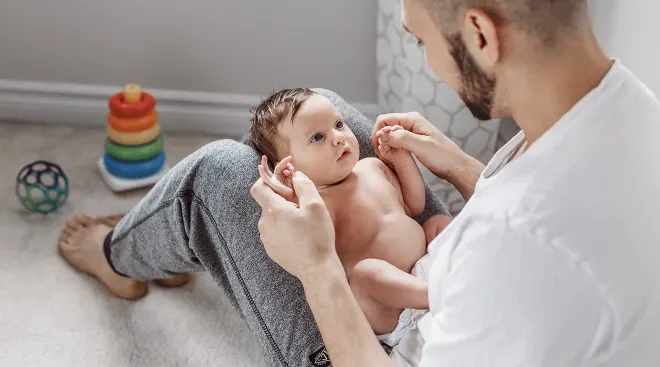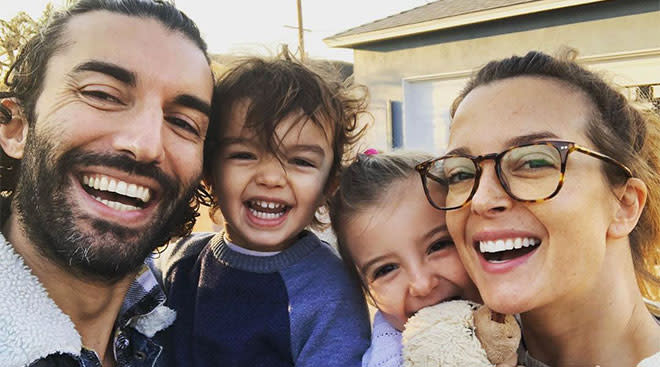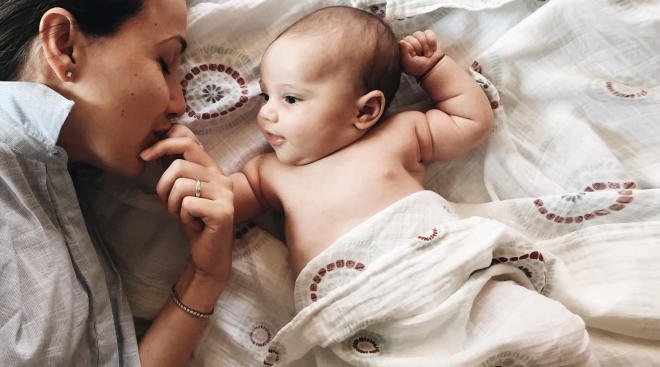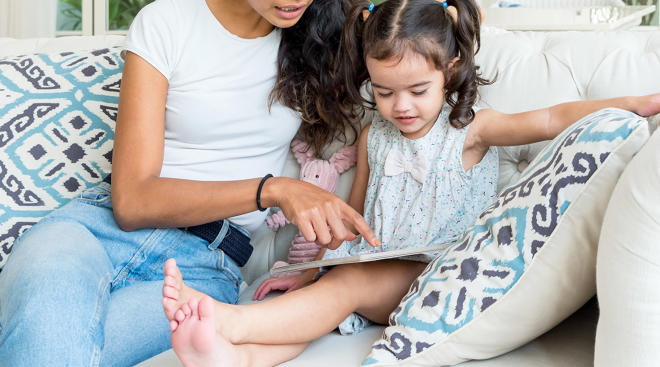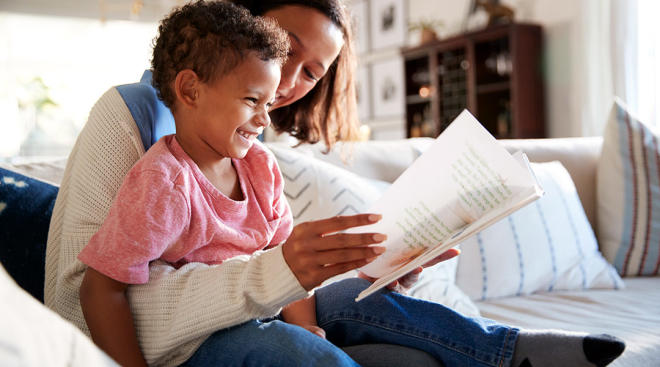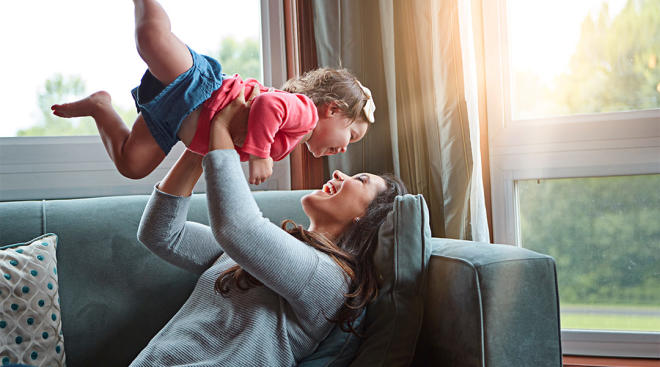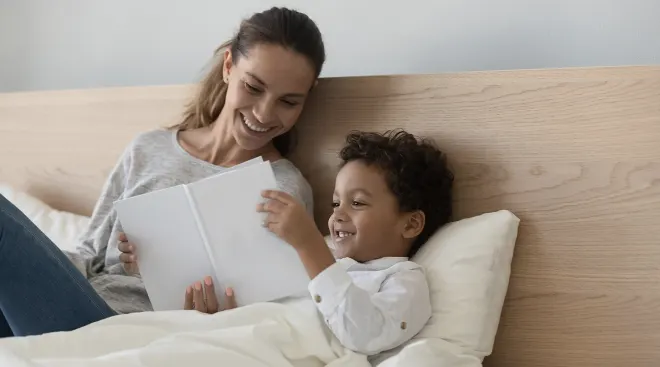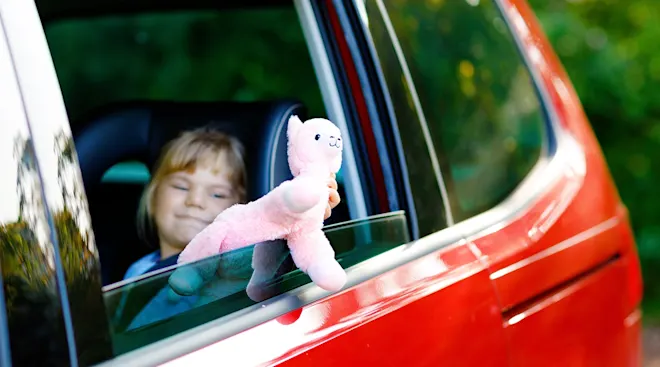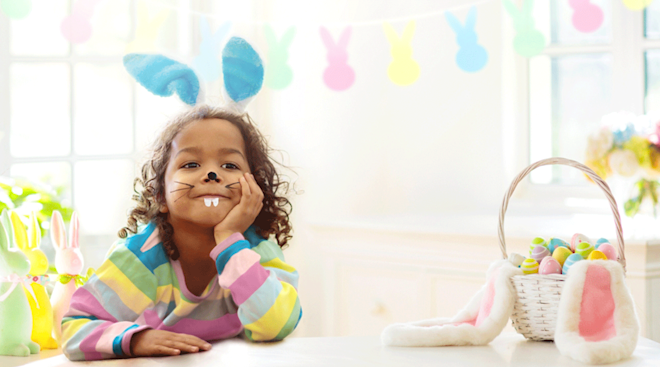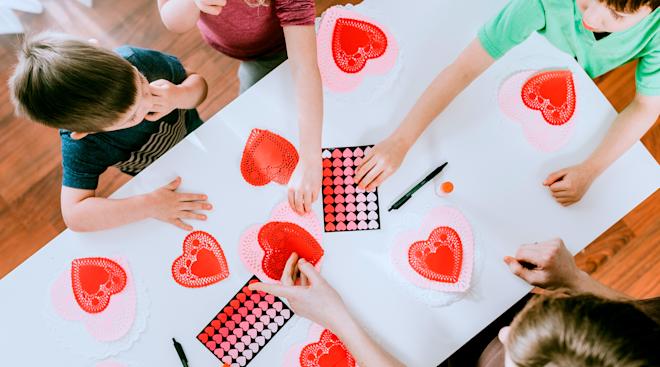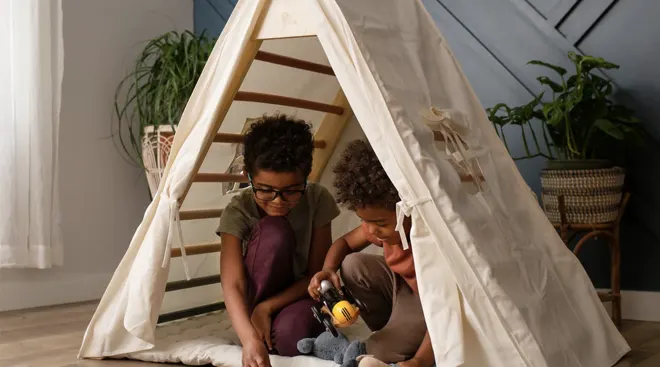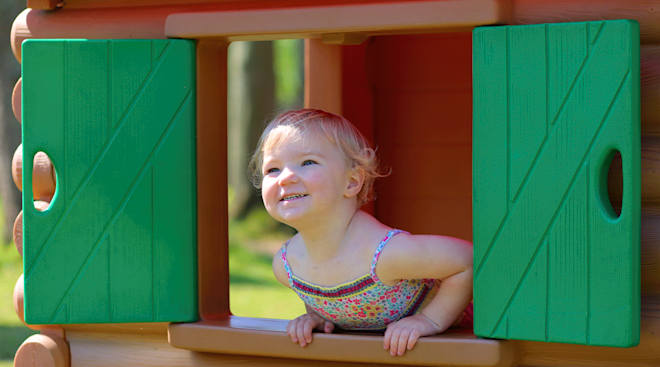7 Ways to Help Your Kids Develop Good Mental Health
You know all the right things to do to protect your child’s physical health—make sure they eat healthy foods, see the doctor and get enough sleep and movement in their day. But what about ensuring that your child grows up with good mental health? It turns out, there is plenty you can do as parents to help foster your child’s emotional and mental wellbeing.
Good mental health basically boils down to being able to take things in stride. “Children with good mental health are able to experience a range of emotions, both comfortable and uncomfortable, without high levels of distress,” says Nicole Beurkens, PhD, CNS, a clinical psychologist and ambassador for Qustodio. “This means they have the resilience to manage uncomfortable feelings such as hurt and embarrassment, and don’t fall apart when unexpected or disappointing things happen. They are able to persevere when they encounter challenges, and can move on from failure.” Mentally healthy kids can also adapt to change (within reason), she adds, and aren’t overly fearful about new experiences.
Of course, how that presents itself changes as your child grows and develops—your 2-year-old will have a harder time coping with new situations than your 12-year-old. Your child’s temperament also comes into play, as more cautious children may be more fearful in new situations than their bolder friends. “Confidence and resilience will have huge variability in presentation depending on the age and stage of the child as well as the child’s temperament,” says Vanessa Lapointe, PhD, a child psychologist and parenting educator. “It’s important to never pathologize what is healthy, typical, normal, perfect development for that individual child.”
The most important factor in helping your child develop positive mental health? You. “The number one indicator in all of the literature around childhood mental health is the health of the parent-child relationship. Full stop,” Lapointe says. “So nurture that relationship, be very present with your children, nurture your own mental health and well-being so you can be very present with your children, and have nothing about your relationship with your children be conditional on their behavior.”
Here are some concrete techniques you can use to foster that strong parent-child relationship and boost your child’s resilience and flexibility.
Tips for promoting positive mental health:
1. Be a Role Model
“The ways parents handle things like frustration, challenges and uncomfortable feelings plays a significant role in how children learn to respond,” Beurkens says. “If children experience a parent reacting to frustration with anger and giving up, for example, they will tend to manage frustration in the same way. A parent who communicates excessive fear about new things and tries to shelter the child from situations where any hurt or disappointment could occur is likely to have a child who is more fearful and avoidant as well.”
2. Limit Your Child’s Screen Time
The American Academy of Pediatrics recommends no screen time (other than video chatting) for kids under 2, and only one hour of quality children’s programming for kids 2 to 5. The benefits of limiting screen time include improved mental health. “The digital age has our children turning to their devices for support and connection rather than to their most trusted grownups,” Lapointe says. “The trouble is that you can never get a big enough, deep enough ‘hit’ of connection from a screen. But because kids get a surface hit, it keeps them just ‘full’ enough that they lose interest in seeking it from their parents—and only that deep, big connection is enough to really release them to full development.” She likens it to filling up on junk food and then not having room for a healthy meal.
But limiting screen time doesn’t just apply to kids—you also need to put down your phone and show your kids how it’s possible to balance the use of electronics with other life activities, Beurkens says. “It’s also important that parents spend time each day engaging with their kids without devices present,” she adds, “as this supports healthy parent-child relationships and supports child development in all areas.”
3. Stop Helicoptering or Snowplowing
You’ve heard about helicopter parents (who hover over their child to ensure everything’s going well) and snowplow parents (who smooth the way for their child so they don’t have to face any bumps in the road). While well-meaning, these kinds of parents actually limit their children’s development by not allowing them to experience disappointments or overcome struggles. “The more children are engaged in activities with caregivers where they can be successful some of the time but also have to navigate challenges other times, the better for developing healthy self-esteem and mental health,” says Beurkens. “Let them try climbing something a little higher than they have before, or wrestle with putting together a puzzle that’s new to them. Don’t jump right in to rescue if they encounter a problem, but support them through it so they get the experience of successfully managing something a little tough without falling apart.”
This is the perfect opportunity for you to offer encouragement and support. Give your kid opportunities to try new things, maybe fail at them and then try again, Lapointe says, all while creating a soft landing if things don’t go their way.
4. Focus on Your Child’s Physical Health
Physical health impacts mental health, so make sure you’re providing the best building blocks for both. “Diet contributes to mood, attention, anxiety and behavior,” Beurkens says. “Kids who eat a nutrient-poor, processed foods diet are at higher risk of mental health problems.” Making sure your kiddo is getting enough sleep is also critical for mental health, she adds, since poor sleep can lead to worse mood, less emotional resilience and poor coping skills.
5. Talk to Your Child About How They’re Feeling
Being able to share their feelings in a healthy, productive way is essential for good mental health. “Kids need to be allowed to feel sad, frustrated, hurt—and supported to work through those feelings in appropriate ways,” Beurkens says. “Modeling and supporting them to use tools like deep belly breathing, movement, distraction and talking helps them know how to manage big, uncomfortable feelings when they occur.”
6. Accentuate the Positive
Praise from parents can help boost your child’s self esteem—but the best kind of praise is for their effort, not their success. “Pointing out things your child does well and ways you notice them succeeding is a good start,” Beurkens says. “However, it’s even more beneficial to praise the effort you see the child exhibiting so they develop a positive sense of self even when they’re struggling or not the best at whatever they’re attempting.”
7. Show That Making Mistakes Is Normal
You don’t want to necessarily harp on your child’s errors, but make sure you let them see your own occasional missteps. “Spotlighting mistakes you make normalizes this for children and helps them see that everyone makes mistakes and they aren’t a reflection on the person’s worth,” Beurkens says. That will help them avoid the anxiety and stress that comes with perfectionism and build a positive, healthy sense of self-worth.
Please note: The Bump and the materials and information it contains are not intended to, and do not constitute, medical or other health advice or diagnosis and should not be used as such. You should always consult with a qualified physician or health professional about your specific circumstances.
Plus, more from The Bump:
Nicole Beurkens, PhD, CNS, is a clinical psychologist and certified nutrition specialist who has been supporting children and families for more than 20 years. She is also the founder and director of Horizons Developmental Resource Center in Caledonia, Michigan, and is the author of Life Will Get Better(https://www.amazon.com/Life-Will-Better-Nicole-Beurkens/dp/0997363916?&linkCode=ll1&tag=tb-childrens-good-mental-health-20&linkId=45aacb0d5deb0ec3647f7c376180a10b&language=en_US&ref=asli_ss_tl).
Vanessa Lapointe, PhD, is a registered child psychologist and parenting expert who has been supporting children and families for more than 15 years. She is the author of Parenting Right from the Start: Laying a Healthy Foundation in the Baby and Toddler Years(https://www.amazon.com/Parenting-Right-Start-Healthy-Foundation/dp/1928055389?&linkCode=ll1&tag=tb-childrens-good-mental-health-20&linkId=b8e10bf7b7f43d103f5e620632a87373&language=en_US&ref=asli_ss_tl) and a regular media contributor.
Learn how we ensure the accuracy of our content through our editorial and medical review process.
Navigate forward to interact with the calendar and select a date. Press the question mark key to get the keyboard shortcuts for changing dates.
































